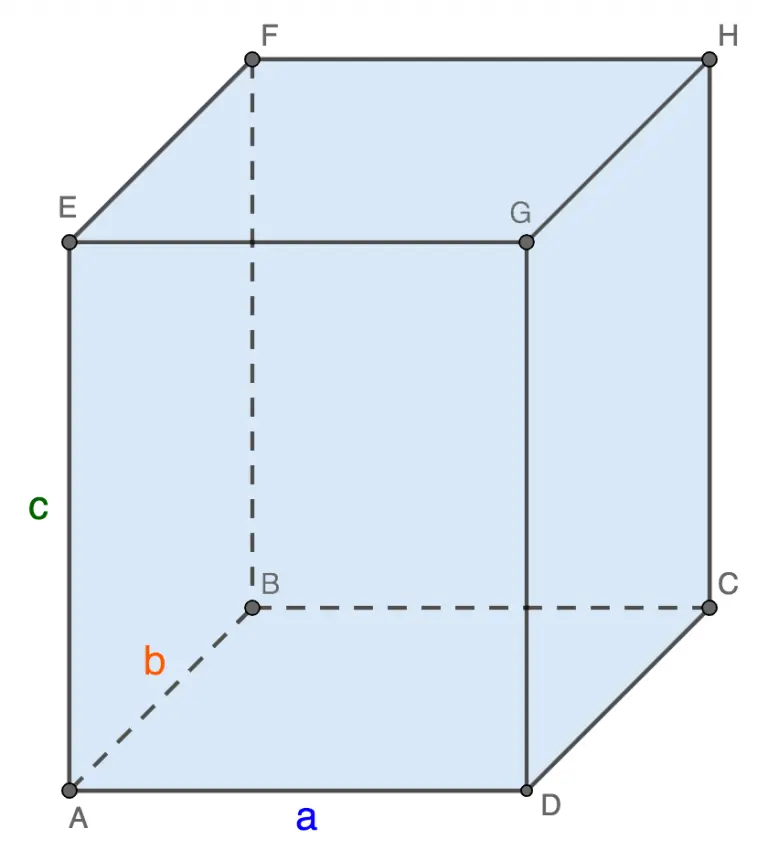Contents
In this publication, we will consider how to calculate the surface area of a rectangular parallelepiped and analyze an example of solving a problem for fixing a material.
Content
Area formula
The area (S) of the surface of a cuboid is calculated as follows:
S = 2 (ab + bc + ac)

The formula is obtained as follows:
- The faces of a rectangular parallelepiped are rectangles, and the opposite faces are equal to each other:
- two bases: with sides a и b;
- four side faces: with a side a / b and tall c.
- Adding the areas of all faces, each of which is equal to the product of sides of different lengths, we get: S = ab + ab + bc + bc + ac + ac = 2 (ab + bc + ac).
Example of a problem
Calculate the surface area of a cuboid if it is known that its length is 6 cm, width is 4 cm, and height is 7 cm.
Decision:
Let’s use the formula above, substituting the known values into it:
S = 2 ⋅ (6 cm ⋅ 4 cm + 6 cm ⋅ 7 cm + 4 cm ⋅ 7 cm) = 188 cm2.









